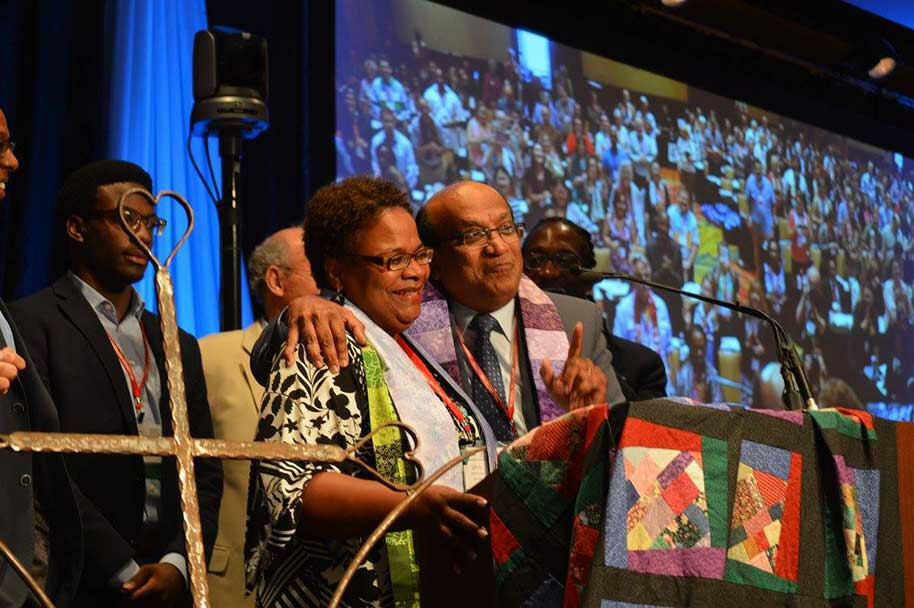Northeastern elects Easterling as bishop

By Beth DiCocco*
LANCASTER, Pa. (UMNS)—With 119 votes, 18 more than she needed, LaTrelle Miller Easterling was elected as bishop by the Northeastern Jurisdiction on July 14.
Easterling told the member conferences of the Northeastern Jurisdiction that no matter where it is, “If God sends me there, I will never look back.”
“I always, always, always stand on the side of justice,” she said, “but I draw the circle wide enough for all of us to be there – and when I say all, I mean all.”
She became district superintendent in 2012, succeeding the late Martin D. McLee, who was elected bishop that year. She has followed McLee’s path to the episcopacy having served as pastor of Union United Methodist Church in Boston and then as superintendent of the same district he had served.
Guiding hand of Christ
An Indianapolis native, Easterling, 51, told those at the jurisdictional meeting about a Friday night when she was 16 and sitting in the back of her hometown church.
“All of a sudden something started tingling in me,” she said, and her peers asked what she was doing as she moved toward the front. “There was a hand that guided me down that aisle and I gave my life to Jesus Christ and I have never looked back.”
Easterling admitted that she “tried to run” from the call to ministry, “but God was faithful,” and for five days woke her at 3:33 a.m. to say: “Preach My Word.”
She said the Scripture that has carried her through the election process is Jeremiah 12:5, and displaying her gifts as a preacher, said:
“Beloved, we got some horses we got to run
Easterling
She was a delegate to General Conference in 2012 and
Easterling earned her bachelor’s degree at Indiana
She is married to the Rev. Marion Easterling, Jr., the pastor of Parkway United Methodist Church in Milton, Massachusetts. They are the parents of two sons, Garrett Walter and Miles
Easterling is the second of two African-American women elected as bishop at this conference. The first was the Rev. Cynthia Moore-Koikoi.
When asked during the interviews about inclusivity, Easterling said, “I know what it feels like to be excluded. I know what it feels like to be present but ignored.”
But getting to know one another can change that, she said.
“Once we get to know each other, it’s almost impossible to hate, it’s almost impossible to continue excluding, it’s almost impossible to remain where you were. We are changed when we hear one another’s story.”
DiCocco is director of communications for the New England Conference.
